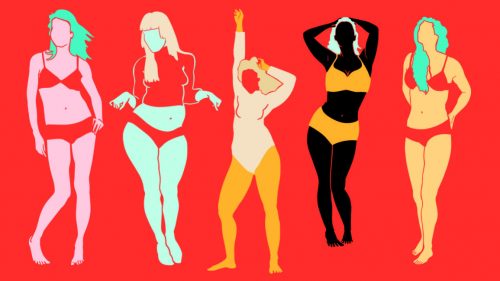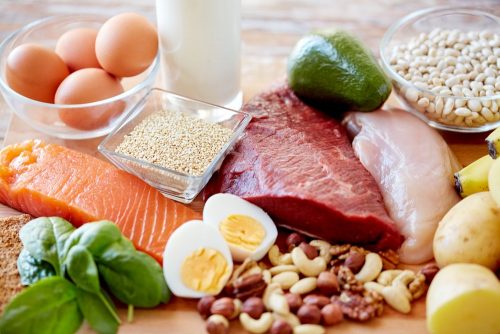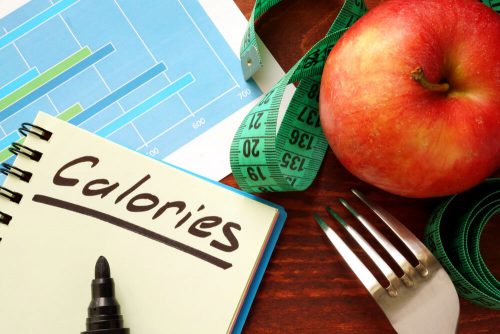Weight-Loss Tips That Should Work For Beginners!
According to many studies, only 1 out of 5 people could successfully lose around 10% of their body mass. Furthermore, one of the reasons that make weight loss such a challenge is the plateau effect, where your weight stops decreasing even though you have tried options.
At this point, you might think about dropping the idea of weight-loss, don’t you? Fear not, perhaps we could help! Here are some scientifically proven tips to help you fight against the plateau effect.

1/ Start weight training
While weight training is less useful for weight loss than cardio, but it would help raise your metabolic levels significantly when you go on a long-term diet. Besides, this method improves your metabolism and prevents your body from going into a state of low energy consumption. However, don’t forget the post-workout protein: your muscles will get stronger, and no more extra fat!

2/ Change the caloric value weekly
When we start dieting, our bodies usually begin to adapt to smaller volumes of food and reduce energy intake. In other words, the body adapts to new living environments while retaining the excess weight in case you would go without any food during this period. And when you chose to eat less, your body is now familiar with the smaller caloric level. To fool the body successfully, you can use something called the calorie cycles. For 2 days a week, consume around 1,000 or 1,200 kcal with almost no carbs. Meanwhile, eat 1,500 kcal for the rest. By doing this, you can create a necessary caloric deficit while not harming your metabolism.

3/ The real plateau vs the imaginary plateau
During the first days of the diet, excess fluids will leave your body, making you feel like you are losing weight quickly. However, to lose just 1 lb, you will be needing a 3,500-calorie deficit. No matter what method you use, it’s not going to be fast. Now, many would make the mistake of thinking losing weight slowly is a plateau, so they quickly stop the diet and go back to the normal life. What you need to do in this case is to be patient, and perhaps stop stepping on the scale every week.

4/ More protein and vegetables
Low-carbohydrate diets are arguably the best strategy for weight loss. Protein and fiber help us stay full and boost our metabolism. On the other hand, carbohydrates often cause your insulin levels to go up, making us hungry. As a result, it would be better if you eat low-fat meat rather than sweet fruits if you try to lose weight.

5/ Switch up your exercises
Thousand years of development teaches our bodies one simple rule: all resources must be saved by any means. If you have a work-out routine, your body usually adapts to it. As a result, you might find them not as effective as the first time you start the exercise. Now, here’s a solution: change them up once every 1 to 1,5 months. There are many exercises that you can easily switch to like pilates, yoga, or muscle training.

6/ Don’t give up tasty food
For us currently trying to diet, our right function of the brain always tries to resist eating. However, staying away from tasty food for a long time might bring more harm than you think. At one point, our brain will convince us that eating a super yummy thing like a piece of chocolate or sweet will bring greater joy than usual. As a result, many nutrition experts have suggested adding a small portion of “prohibited” foods in people’s diet. The so-called “cheat day” will bring down the chance of you losing control during your weight-loss journey.

7/ Recalculate the caloric value of the food you eat
The amount of calories needed for your weight loss depends not only on physical activity but also on the body’s mass. If an overweight person consumes just 2,000 kcal a day, they could perhaps try to lose weight, and if a woman does the same thing, big chance that she will be gaining lots of weight. After every 10 pounds that you lose, do not forget to recalculate your food’s caloric value.

8/ Do you have a strict sleeping schedule?
As scientists have pointed out, if you don’t have a quality “sleeping time”, there is no way you can keep a healthy weight-loss period. There are many reasons why, but in short, you are causing stress for your body if you don’t sleep enough. Stress often leads to you feeling hungry and plays a big change in your metabolism. As a result, make sure that you get enough sleep no matter what.

9/ Count your calories intake
From what we observed, most people tend to stop tracking their food intake after a few weeks if they don’t supervise the process. As a result, make sure to always note down how much you have eaten, so you can always make any changes if needed.

10/ Take body characteristics into account
For most women, we know that our bodies often retain more water right before the start of our menstrual cycle. Now, when you go on a diet, make sure to consider what you eat and how would they affect your body. For easy tracking, use a tape measure to see if your body has changed instead of a scale.









